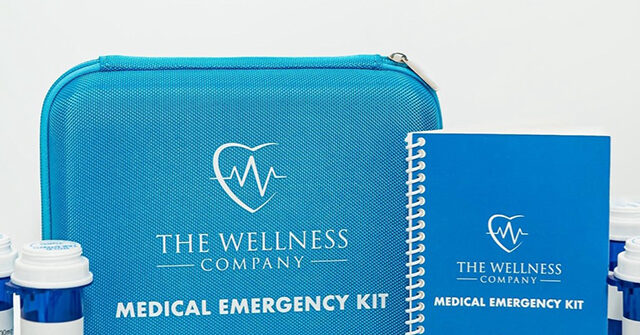Top News
FEAR FACTOR: Tripledemic Concerns Heighten as COVID, Flu, and RSV Cases Surge

The following article by Austin Williams is sponsored content from The Wellness Company.
The new year is kicking off with a notable uptick in cases of the flu, COVID-19, and RSV which is fueling fears about the emergence of a so-called tripledemic. Amid this surge, healthcare professionals are grappling with increased patient loads. While establishment medical advice emphasizes vaccination, testing, and masking, some high-profile doctors say there are alternative approaches to staying healthy.
“The real concern with the tripledemic is severe secondary bronchitis or pneumonia symptoms that land you in the hospital,” said Dr. Peter McCullough, a cardiologist who is the chief scientific officer for The Wellness Company. “The risks are simply too high to be unprepared at home.”
The Return of the Flu
The heightened fear of a tripledemic stems from a significant resurgence in flu cases, which was a nonissue during the pandemic.
According to the Centers for Disease Control (CDC), flu activity is currently “elevated and continues to increase in most parts of the country.” In the most recent week, more than 20,000 individuals were admitted to hospitals for the flu. Healthcare providers saw a 7 percent increase in visits for respiratory illness.
COVID Variant Surge
The CDC reports that COVID-19 wastewater viral activity levels and test percent positivity—indicators for infection levels—are higher than at the same time last year.
One large hospital, Cedars-Sinai Medical Network, reports that its primary care and urgent care offices have seen the percentage of positive cases has doubled in recent months, rising to 14 percent of tested patients by the end of December.
One pediatric infectious disease expert at Cedars-Sinai said that she has treated many young children and infants who have come to the hospital needing oxygen. She recommends that babies get the COVID-19 vaccine when they’re eligible, starting at six months of age.
RSV in the Mix
The third part of the tripledemic is the respiratory syncytial virus, known as RSV. Dr. Drew Pinsky, who is the chief medical board member of The Wellness Company, stated that RSV appears to be “increasing in frequency and severity of the elderly.”
The CDC recommends two RSV vaccines for adults ages 60 and older, one RSV vaccine for pregnant women, and an RSV preventive antibody for infants and some young children.
The Hill reported that healthcare experts hoped the vaccines would keep cases low this season, but Americans are “struggling” to get access to them.
Vaccine Hesitancy
The public has mostly ignored doctors and the government’s push for vaccinations. Merely one in five adults have gotten the new, updated COVID-19 vaccine that became available in September, according to the KFF.
Despite CDC warnings, Yale Epidemiologist Dr. Harvey Risch notes that even the New England Journal of Medicine indicates the RSV vaccine is only 68.4% effective in people 60 and older. “And observational studies designed to demonstrate COVID-19 vaccine effectiveness were skewed by bias as noted by Kaiser Fung Mphil, MBA; Mark Jones PhD; and Peter Doshi PhD,” says Risch. “And flu vaccine effectiveness varies season-to-season.”
Dr. Risch suggests that the respiratory viral season is showing “normal infections that our society takes in stride.”
The CDC’s statistics show a decrease in COVID-19 patients requiring medical attention this year. There is a 21 percent decrease in emergency department rates for COVID-19 patients this year compared to last year.
“In the era of omicron, COVID itself is relatively mild and efficacy of the vaccine boosters have been questioned by some, ” notes Dr. Drew. He said there are good home treatments in most situations for the symptoms of these viruses.
Alternative Treatments
For those who want to treat the symptoms at home, Dr. Risch recommends they purchase The Wellness Company’s Medical Emergency Kit. This prescription-only kit features a range of essential medications such as antibiotics, antivirals, and antiparasitics and includes medications such as ivermectin and azithromycin.
Dr. McCullough recommends, “Don’t wait until you’re sick to get the medications and treatments you need.”
Read the full article here


















